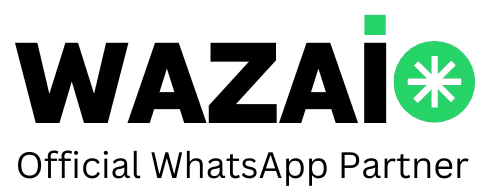“`html
NSO Group Allegedly Exploited New WhatsApp Zero-Day Post Lawsuit
The cybersecurity landscape has once again been rocked by revelations concerning the infamous NSO Group. The Israeli tech firm, widely recognized for its controversial Pegasus spyware, has allegedly exploited a new zero-day vulnerability in WhatsApp, occurring after previous lawsuits had been filed against them. This developing story sheds light on ongoing concerns around privacy, security, and the implications of surveillance technology in the modern digital era.
Understanding Zero-Day Vulnerabilities
Zero-day vulnerabilities are security flaws that are unknown to the vendor and hence lack a patch or fix. These vulnerabilities are particularly dangerous because they can be exploited by hackers to gain unauthorized access to systems or devices before the vendor becomes aware. In recent years, as digital security has become paramount, zero-day vulnerabilities have become highly prized by both cybercriminals and state actors.
The NSO Group’s Controversial Legacy
Founded in 2010, the NSO Group has been at the center of numerous controversies. The company is best known for its Pegasus spyware, which has been used to monitor activists, journalists, government officials, and dissidents across the globe. Despite claims that Pegasus is sold solely to government clients for legitimate crime and terror investigations, evidence has repeatedly suggested otherwise.
Earlier lawsuits filed against the NSO Group have pointed to unauthorized surveillance as a violation of privacy rights. The latest alleged exploitation of a WhatsApp zero-day further complicates the company’s already tumultuous public image and raises concerns about the oversight of surveillance technologies.
WhatsApp: A Previous Target
WhatsApp, owned by Facebook (now Meta Platforms), is one of the most popular messaging platforms globally, boasting over two billion users. It is known for its end-to-end encryption, which is touted as a robust security measure protecting user communications from prying eyes. However, the platform has been a target of NSO’s Pegasus spyware in the past. In 2019, WhatsApp filed a lawsuit against NSO Group, accusing it of breaching its systems and targeting 1,400 users with spyware.
The Alleged Exploitation
The new allegations suggest that NSO may have taken advantage of a yet-undisclosed zero-day vulnerability in WhatsApp, further complicating the legal and ethical landscape for the company and its stakeholders.
- Nature of the Exploit: Reports indicate that this exploitation may involve unprecedented technical sophistication, possibly involving novel techniques to bypass WhatsApp’s encryption and security protocols.
- Potential Victims: As investigations are ongoing, it remains unclear how many individuals or entities might have been affected by this breach.
- Global Repercussions: This discovery holds potential for international diplomatic tensions, especially if it is found that state actors have been complicit or reliant on NSO’s spyware through back-channel agreements.
Legal and Ethical Implications
The unfolding situation brings to light critical questions surrounding the ethical dimensions of deploying surveillance tech:
- Accountability: Who should be held accountable for unauthorized surveillance? Are tech firms like NSO responsible, or does the onus fall on client governments misusing the technology?
- Privacy vs. Security: How do societies strike a balance between national security and individual privacy rights, particularly in an age of ubiquitous digital communication?
Legal experts suggest that new international norms might be necessary to regulate the development and use of such technologies to better protect individual privacy rights while allowing legitimate security operations.
The Future of Digital Security
The allegations against NSO and the resultant investigations underline the necessity for strengthened digital security measures:
- Enhanced Encryption Standards: Continuous improvement of encryption technologies can provide stronger safeguards against unauthorized access.
- Regular Security Audits: Tech companies need to conduct regular security audits and incentivize ethical hacking to identify vulnerabilities before they can be exploited.
- International Collaboration: Global cooperation is essential in developing shared norms and response strategies to cybersecurity threats.
Individual Responsibility
Beyond corporate and governmental actions, individuals also bear responsibility for their own digital security:
- Up-to-date Software: Always ensure that apps and operating systems are kept up-to-date to benefit from the latest security patches and improvements.
- Awareness and Education: Staying informed about the latest cybersecurity threats and best practices can empower users to protect their personal information.
- Use of Multi-Factor Authentication: Whenever possible, enable multi-factor authentication to add an extra layer of security to online accounts.
Conclusion
The latest allegations against NSO Group underscore the need for greater scrutiny and regulation of cybersecurity practices and technologies. As societies continue to grapple with the delicate balance of privacy, security, and technological advancement, it is essential for all stakeholders—from governments and tech firms to individual users—to engage in constructive dialogue and take proactive steps towards a more secure digital future.
“`



